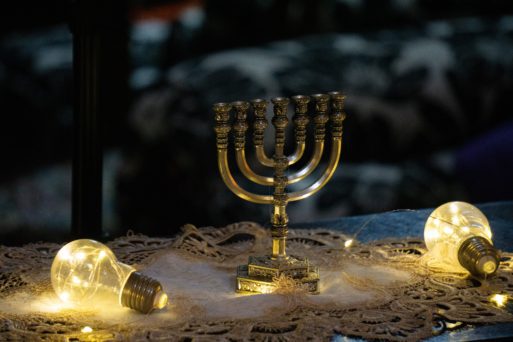
Research over the years has shown a surprising spike in death rates, particularly by natural causes, near or just after the holidays, compared with the rest of the year. Reasons for this are yet unknown, though a number of theories have been formed. One touching idea comes to mind: perhaps those facing the end-of-life wish to postpone death by a few days, in order to capture the last joyful moments with loved ones.
Whatever you believe, take this time to celebrate the connections you have with loved ones. Take the opportunity to re-connect with those near the end-of-life, and celebrate the life you’ve shared.

With the Christian majority in the U.S. and the secular celebrations that the holiday has prompted, we tend to focus on Christmas this time of year. But, there are dozens of celebrations worldwide, ways to come together as family and friends and toast to life and love. Here are just a few of the traditions you may see before the New Year:
Hanukkah: This 8-day Jewish holiday commemorates the re-dedication of the Holy Temple of Jerusalem in the 2nd Century BCE. The festival is observed by the daily lighting of a candle in the Menorah, singing traditional songs, and often exchanging gifts.
HumanLight: This young holiday was originated by the New Jersey Humanist Network in 2001, and is observed each year on December 23, in order to create a uniquely secular Humanist holiday during this season. On this day, Humanists celebrate a positive approach to the coming year, without a religious lens.
Winter Solstice: Originally a Celtic holiday, the Winter Solstice is now often observed as a secular holiday in the West, as well. The day celebrates the last of the shortening of days in the western hemisphere, and begins the lengthening of them, another way to look forward to the coming year. The holiday occurs between December 21-23 each year, and has been the central date for observance of various winter holidays throughout history.
Pancha Ganapati: This five-day Hindu festival in honor of Lord Ganesha, is celebrated from December 21-25. The festival signifies a new beginning and mending of all past transgressions. Traditionally, a shrine is erected and decorated in the family’s living room, and a special spiritual devotion occurs each day.
Festivus: Made popular by the sitcom Seinfeld, this secular holiday still endures with individual celebrations. The holiday shuns the commercialism that many believe has corrupted other winter holidays, and takes place on December 23. It is celebrated with such acts as erecting an unadorned aluminum pole (as seen on the sitcom).

 Find New Ways to Connect this Holiday Season
Find New Ways to Connect this Holiday Season


 “Help Me, Helen”
“Help Me, Helen”
 Recovering Cremation Remains After the Los Angeles Fires
Recovering Cremation Remains After the Los Angeles Fires
 “As Tears Go By” by Marianne Faithfull
“As Tears Go By” by Marianne Faithfull














